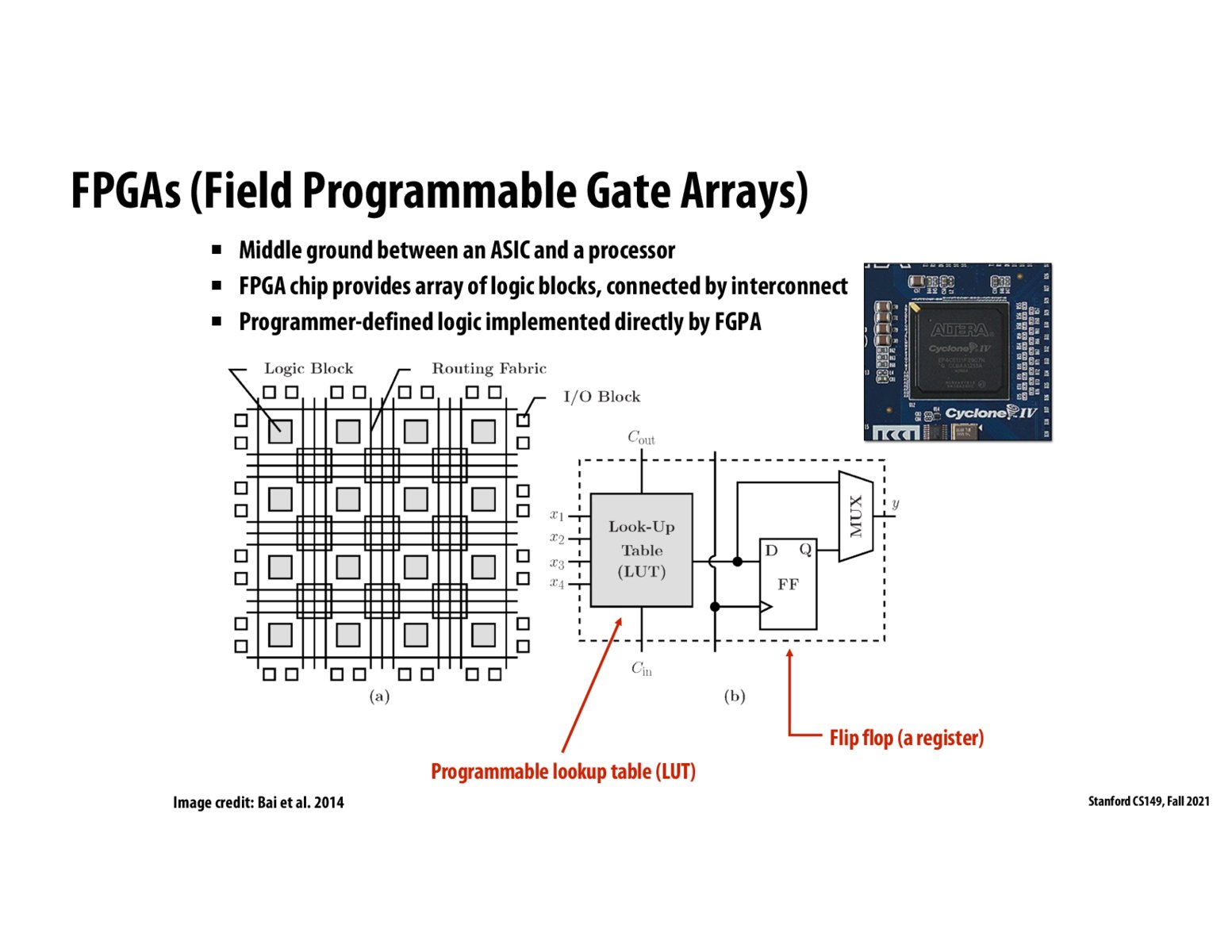


FPGAs are also great for ASIC prototyping where FPGAs can help verify that the hardware is functionally correct and iterate on the design. This can reduce both time-to-market and development cost. For example, Xilinx offers whole suites of software/hardware solutions for this emulation workflow (https://www.xilinx.com/applications/emulation-prototyping/fpga-based-prototyping.html).

This reminds me of programmable switch ASICs in the networking field! I think that these are built on a similar idea as FPGAs?
https://en.wikipedia.org/wiki/P4_(programming_language) & https://www.accton.com/Technology-Brief/benefits-programmable-switch-asics/
My understanding of the history is that: the general consensus in the field is that there was a fundamental tradeoff between performance / throughput and flexibility / programmability, until Nick McKeown et al came along and built a specific programming model that could be translated efficiently into hardware. cool stuff :)

the general consensus in the field was that there was

Note to others who don't have an EE background: a flip flop just stores a bit, and a MUX/multiplexer is a switch that selects and forwards one of several inputs to a single output. I don't really understand what the MUX is doing here though

@tcr wow that's a really cool invention by Prof McKeown (fyi he teaches CS 144 if anyone's curious). I have heard that it would make sense to have FGPAs to have some sort of super versatile macbook where you can have the circuits rearrange to run tensorflow efficiently, and then also have the circuits rearrange to run Final Cut Pro efficiently, all on the same laptop. I am curious if anyone else has heard of this and can expand on it

FPGAs represent a middle ground between a general-purpose processor and an Application-Specific Integrated Circuit. It does that by being able to encode a specific circuit (say, matrix multiply), but not permanently (it can be repurposed).
Please log in to leave a comment.
Here is a short YouTube video that gives a pretty good basic introduction of what FPGAs are: https://youtu.be/WY-F3knih7c